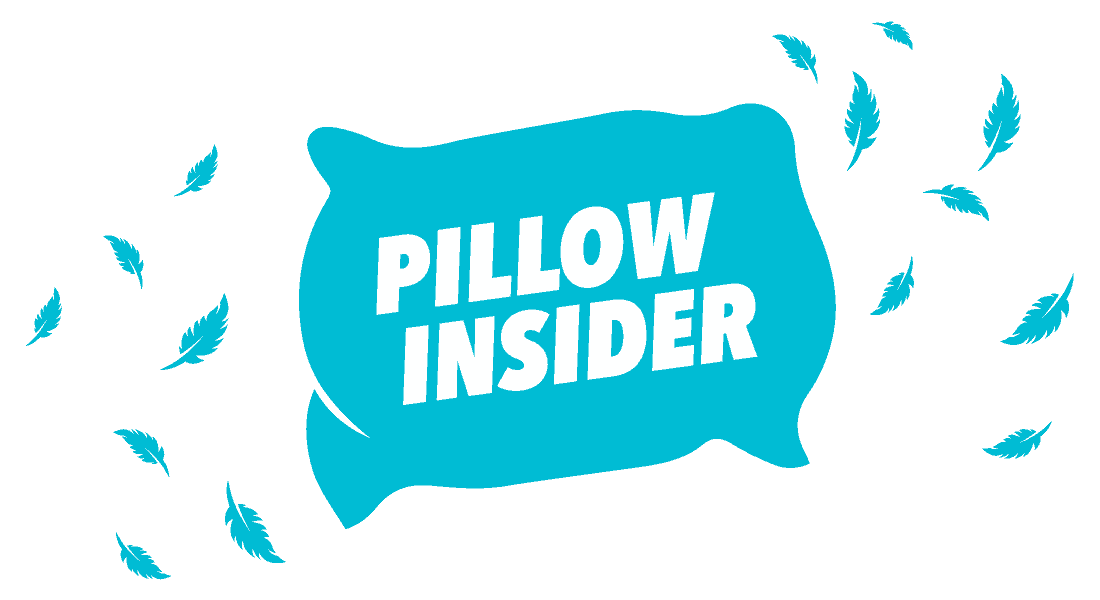Pillows are an integral part of every bedroom. Almost everyone has used a pillow under their head for sleeping for as long as they can remember, and most people won’t even be able to fall asleep if they don’t have that soft, comfortable lump under their head.
But there are some people who swear by not using pillows when they sleep. A number of studies have been carried out about the benefits of sleeping with and without pillows. This will depend not only on the position you sleep in, but also your anatomy.
So, do you need a pillow? In this article, we talk about both the advantages and disadvantages of using a pillow when you sleep.
What Are the Benefits of Using a Pillow?
Since a majority of people all around the world use a pillow when they sleep, let’s start with the advantages of using a pillow.
Proper Head & Neck Support
Providing support to your head, neck and shoulders is the most important aspect of using a pillow. The natural posture of your body does not align the back of your head with your spine, which is the position you are in when you’re asleep. The healthiest position to sleep in is typically the one in which your body is the most aligned and comfortable.
Promotes Bodily Alignment
Your head and neck are not the only parts of your body that are supported by your pillow. To provide a good balance between the points of alignment in your body, your head needs to be slightly raised when you’re lying down. Pillows provide this elevation when you use them under your head when you sleep. Supporting Back & Spine Health
If your neck is extended away from its natural position in any direction when you sleep, it causes pressure on your back and spine. The weight of your head in the wrong direction for an extended period of time can cause back pain and similar muscle problems.
Preventing Joint Pain
Because of the pressure on your spine, you might experience pain in other parts of your body as well. For example, if you’re a side sleeper, sleeping without a pillow and letting your head rest directly on the bed can cause problems in the joints of your hip.
Conventional pillows are most suited for back sleepers, providing them with the cushioning and comfort that they need to support their head and neck. Side sleepers also benefit from using a pillow so that their neck won’t overextend sideways to meet the bed.

What Are the Disadvantages of Sleeping with Pillows?
Even though pillows come with their share of advantages, you might also want to consider these factors when deciding if you really need a pillow.
Can Cause Wrinkles
If you’re used to sleeping on your stomach or on your side, your face will come in contact with the pillowcase. If it’s particularly stiff, this can cause compression of the skin, leading to premature wrinkling.
Wrinkling of the face is one of the most noticeable signs of premature aging, which might lead to other issues like loss of confidence and reduced energy.
Can Worsen Acne
Because pillows collect a lot of dust and grime from their surroundings, as well as residue from your skin products and makeup, prolonged exposure might cause your pores to get blocked and germs to get access into your skin.
If you’re prone to acne or have sensitive skin, this can cause or worsen facial skin issues.
Oilier Hair
Similar to issues with your skin, your hair can also be affected by using a pillow without cleaning it periodically. Your pillow absorbs oils and products from your hair while you sleep, so if you never swap it out or wash it, oiliness abounds.
Worsening Allergies
Since pillows are home to dust mites and residual dirt, you might see your allergies acting up if your pillow isn’t completely clean. One way to sidestep this issue is to get a hypoallergenic pillow that does not allow dirt to settle on it.
Memory foam pillows are a great alternative to conventional pillows for this reason because of their hypoallergenic nature.
For Stomach Sleepers
If you’re used to sleeping on your stomach, your head will be properly aligned with the rest of your body. However, in this position, using a pillow under your head can actually extend your neck in the opposite direction, putting pressure on your spine.
Contour pillows are a good choice for people who are used to sleeping on their stomach.
For Restless Sleepers
Not everyone wakes up exactly the same way they went to bed, and a lot of people change positions throughout the night in their sleep.
If you have a pillow under your head in a comfortable position when you’re about to sleep, changing positions during the night can cause you to wake up with neck and back pain if the pillow shifts into a strange configuration.
For People Prone to Headaches
Elevating your head when you sleep slightly reduces blood flow to the brain, which means that your brain gets a reduced supply of oxygen for hours on end. This might cause some people to get headaches.
Bottom Line
Do you need a pillow? If you sleep on your back or your side, using a pillow can be beneficial to your health by providing your head with the support it needs. It will also prevent your back and spine from dealing with the extra weight and pressure, reducing the chances of back pain.
However, for people who sleep on their stomachs or change positions frequently during the night, using a pillow can cause issues with muscle pain, acne and wrinkles. It might also cause headaches in some people due to lower blood flow.
